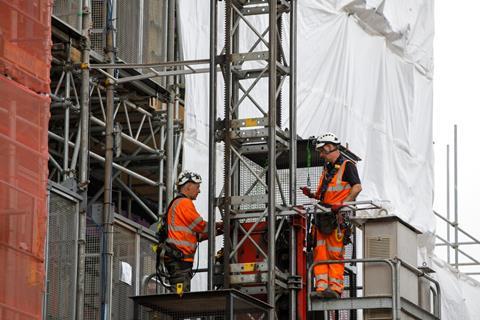Industry vacancies rise to buck national trend
Strong wage growth in construction could not keep pace with inflation, according to the latest figures from the Office for National Statistics (ONS).
The median monthly pay for the industry was £2,402 in September, up 8.5% year-on-year but still lagging behind the most recent annual consumer price inflation figure, which stood at 9.9% in August.
The figures for September, taken from PAYE data, also showed marginal month-on-month wage growth, with median pay up 0.5% and mean pay up 0.1%.

Annual wage growth across the economy also struggled to keep up with cost increases, despite strengthening to 6% in the three months to August.
The ONS said pay growth fell in real terms by 2.4% (including bonuses), among the largest declines since records began in 1971.
Across the economy, annual wage growth (including bonuses) strengthened to 6% over the three months to August,
ONS employment figures showed the number of available jobs in construction rose to 45,000 in the past three months, bucking an economy-wide decline in the number of available jobs.
The figure constitutes a slight uptick from the 43,000 and 44,000 vacancies in the two prior three-month rolling periods.
The figure for July-September was also 2.7% higher than the 44,000 registered in the same period last year, although down on the record levels recorded in February-April this year.
Across the economy, the number of vacancies in July to September was 46,000 lower than in April to June 2022 – largest fall on the quarter seen since June to August 2020.
>> Latest trends and prices data dashboard
Unemployment fell to 3.5%, the lowest level since February 1974, which the statistical body attributes to people leaving the workforce due to long-term sickness.
“The unemployment rate continues to fall and is now at its lowest rate for almost fifty years,” said David Freeman, head of labour market and household statistics at the ONS.
“However, the number of people neither working nor looking for work continues to rise, with those who say this is because they’re long-term sick reaching a record level.”
The tight labour market could increase the likelihood of a heavy interest rate rise as the Bank of England looks for ways to stem inflation.




























No comments yet